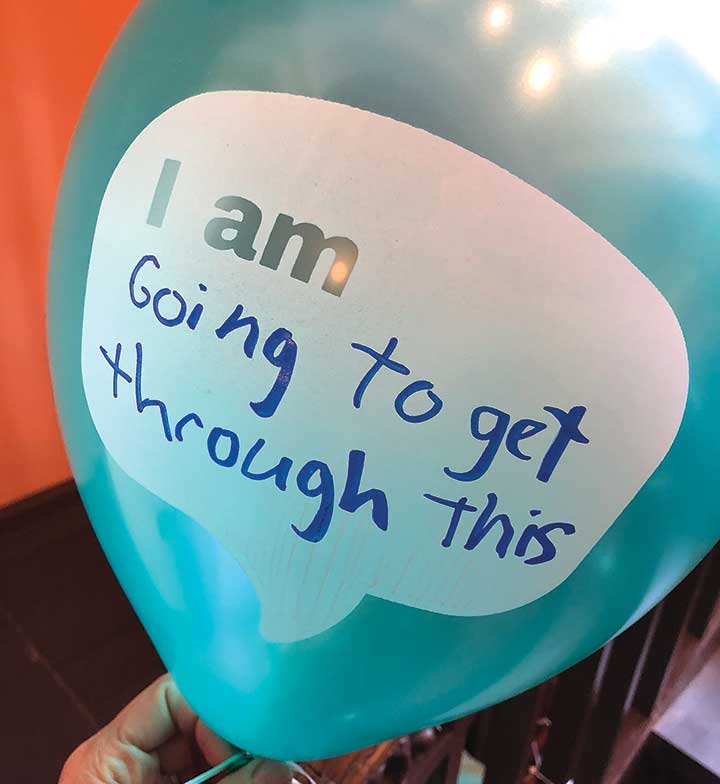Expanding Support
TigerWell helps campus mental-health outreach go beyond the health center
College campuses across the country are grappling with ways to improve student mental health. At Princeton, the TigerWell program is one way the University hopes to address these issues.
Funded by a five-year, $5 million gift from the Elcan Family Fund for Wellness Innovation, TigerWell started in late 2018 as a University Health Services initiative to maximize use of the wellness opportunities that already exist on campus and create new ones.
TigerWell Project Manager Anne Laurita said the program works closely with Counseling and Psychological Services (CPS). “We’re seeking to complement that by looking at what’s happening before [students] arrive at a point of crisis, when clinical intervention may be needed,” said Laurita. The goal is to ask, “What can we do as a campus community to proactively help?”
Among the new approaches was hiring three outreach psychologists who hold drop-in hours in offices outside of McCosh Health Center. Each counselor is assigned to serve a specific population at Princeton: One supports students with marginalized backgrounds; another works with student-athletes; and a third interacts with graduate and international students.
The growing need for counseling options reflects national trends. “The number of students who are accessing college counseling services is increasing throughout the country,” said CPS director Calvin Chin, “and so is the level of severity of the kinds of clinical symptoms that students are presenting with.” Issues with anxiety, perfectionism, depression, guilt, and feeling marginalized are common themes counselors hear from Princeton students.
Physics graduate student Sarah Marie Bruno dealt with some of those feelings after failing her first attempt at the preliminary graduate exam in her department (she passed the second time). “It was really crushing,” Bruno said. Now as the health and life chair for Princeton’s Graduate Student Government, she encourages others to be open about their struggles and has led mental-health awareness activities across campus for the last two years. In 2020 Bruno hopes to add more workshops by continuing to partner with TigerWell and new partners, including alumni.
Events to discuss student health and wellbeing are offered through TigerWell year-round. Campus community members who want to develop an event or program can seek seed grants of up to $3,000 or partnership grants of more than $3,000. Past grants have gone to funding guest speakers, workshops, and wellness initiatives — for example, one student led a project to create opportunities for women who are interested in weightlifting but feel intimidated at the gym.
Institutional factors also play a major role in the trends and concerns students voice. As an example, Laurita said, she has observed students regularly willing to sacrifice sleep because of the amount of work they have to do. Some believe that they must always be working to avoid being unproductive.
“Many years ago, there would be too much stigma to even have a mental health month and talk about these things and now students are much more comfortable coming forward and talking about their experiences,” Bruno said. “We are making progress in the right direction. It just takes a lot of time.”












No responses yet